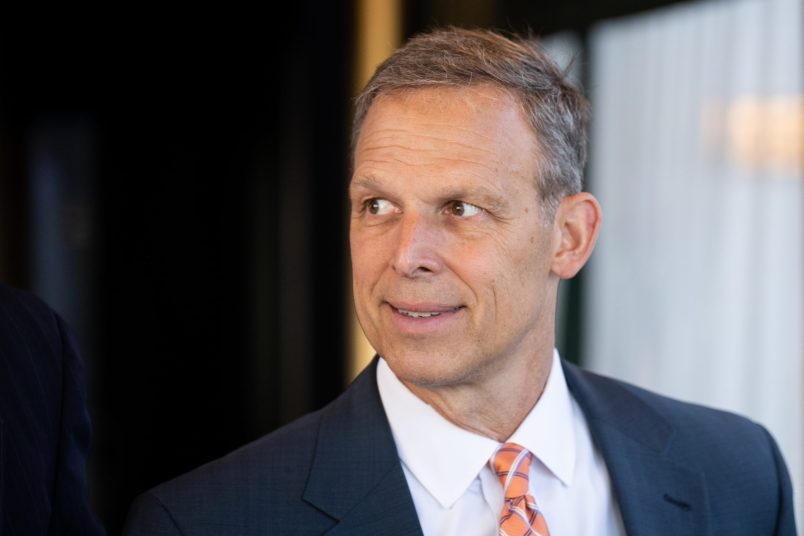The D.C. Circuit Court of Appeals is hearing arguments on Thursday over whether to allow federal prosecutors to access the cell phone of Rep. Scott Perry (R-PA).
The DOJ wants access to Perry’s phone as part of its investigation into President Trump’s attempt to reverse his loss in the 2020 election.
Perry played a key role in the plot. He helped connect Trump with a DOJ official named Jeffrey Bossert Clark, who launched a failed attempt to become attorney general as part of a broader plot to use the DOJ to intervene in the election outcome. Perry also advanced a series of wild claims about the election, including that an Italian defense contractor used military satellites to zap votes away from Trump in swing states.
The case has proceeded under seal until this appeal, when the circuit allowed arguments to be held in the open.
Perry has argued that Congress’ speech and debate clause prevents prosecutors from accessing the phone. FBI agents seized Perry’s phone in June as part of a broader sweep that included searches of Jeffrey Clark’s home as well.
The case is being heard before three appeals judges appointed by Republican presidents — Neomi Rao and Gregory Katsas are Trump appointees, and Karen Henderson was appointed by George H.W. Bush.
John Rowley, an attorney for Perry, opened with a maximalist argument: that the Speech Or Debate Clause applies to any legislative activity, including “fact-finding” missions like the one that Perry was supposedly on. Rowley also said that the “modern realities of technology” mean that judges needed to treat cell phones in the same way that they would treat verbal legislative deliberations.
Judges Rao and Katsas both signaled that they wanted at least some way of delineating where the privilege would end.
“It’s not the cell phone that makes this odd, it’s that the communication can be to anyone in the universe,” Katsas remarked.
After Rowley, federal prosecutor John Pellettieri argued that the Speech or Debate Clause only gave Perry very limited protection, and certainly would not block the DOJ from accessing his cell phone.
Pellettieri argued that it only blocked access to “conduct” that is “integral to legislative processes.” Everything else, he said, was fair game.
The judges were prodding Pellettieri about whether the protection should be broader, before the remote audio broadcast cut out.
Per Politico’s Kyle Cheney, the judges went on to focus on the question of how to draw the line between “fact-finding” conducted under the auspices of a committee and what Perry was up to — unofficial sleuthing that may not be protected.
Earlier in the hearing, Rowley alluded to an earlier, sealed decision from Chief D.C. Judge Beryl Howell which held that Speech or Debate Clause protections did not apply to “informal” fact-finding of the type in which Perry was engaged.
From there, per the Politico reporter, the judges and DOJ discussed how to distinguish in a hypothetical: a lawmaker researching a judicial nominee not as part of any committee. That activity might qualify as “informal,” but might also be a core part of a legislator’s ability to his or her job.
Up until Thursday, the proceedings had largely taken place under seal. That resumed again halfway through the oral arguments, for a portion that was held behind closed doors.
Listen to the arguments here:



